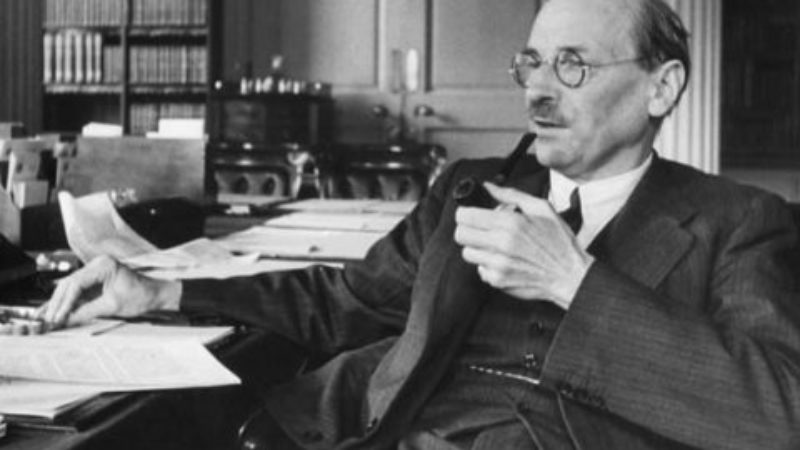
In the week when we celebrate the 75th anniversary of Clem Attlee leading Labour to victory on July 6th, 1945, the party is in as grim a position as it was when Attlee was first elected leader in 1935. A lot rests on whether the newly elected leader is a Clem Attlee figure – capable of both leading Labour to victory and making the most of that victory.
What are the Attlee qualities we most hope for in Keir Starmer? Attlee, outwardly the most modest of people, actually had a self-belief the size of a mountain. He trusted his own judgement absolutely. His decision-making was like a steel trap. He never revisited his decisions, and he claimed never to have lost a night’s sleep over a decision.
Attlee was also ruthless. He was “the best butcher since the war”, wrote Harold Wilson, who was one of the worst (and who is, apparently, the Labour Prime Minister most admired by Starmer.) In 1947, Attlee’s Chancellor, Hugh Dalton, revealed key aspects of his budget to an evening newspaper reporter minutes before he got up to deliver the speech, and the paper was on the streets with the information before he sat down. There was no corruption, no harm was done, and many Prime Ministers would have let it go – but under Attlee, Dalton was out and his career ruined.
Another minister – there is a dispute about which one – answered a summons to see the Prime Minister, and was horrified to find that he had been called in to be fired. What was wrong, he asked? “Not up to it,” said Attlee, and that was that.
Starmer looks as though he may have that. The decision to fire Rebecca Long-Bailey was made like an Attlee decision: fast, and with no second thoughts. Some of the most dedicated Corbynites say it was the result of a long plan, but I don’t buy that. Starmer reacted on the day to what was happening.
Attlee was genuinely modest in an important way: he thought he was nothing without the Labour Party. He wrote to Harold Laski that he had “neither the personality nor the distinction to tempt me to think that I should have any value apart from to the party which I serve”. He once told Jawaharlal Nehru that if Britain had had a presidential system, Churchill would have won in 1945.
That sort of modesty keeps a Prime Minister sane. Some Prime Ministers start to believe they have a special connection with their people, and that’s dangerous and delusional. Tony Blair claimed in his memoirs to have built a link with the people over the head of his party, and Boris Johnson seems to imagine that Britons have some special affection for him. Can Starmer stay sane? It’s too early to say. Ask again when he’s been Prime Minister for a while. But he sounds grounded.
Attlee was no inspiring public speaker, but he inspired trust. With his trim moustache and his ever-present pipe, the most revolutionary Prime Minister Britain has ever had looked and sounded like what he was: a professional middle-class man from the suburbs with a wife, four children and job in London.
If you are trusted, you can change the world. We can’t expect Starmer to go on the campaign trail as Attlee did – in the passenger seat of the family Hillman Minx, with his wife Violet at the wheel. But Starmer, like Attlee, is not a great speechmaker, and he manages to sound un-threatening even when he is saying quite radical things.
Of course, he hasn’t said anything terribly radical yet, and instinctive radicalism is the most important Attlee quality Starmer needs. Attlee believed in is heart that capitalism had made a brutally unfair society, and the job of a Labour government was to unmake it, and make a fair society. His politics were rooted in the poverty he had seen in East London.
Now the job Attlee did will have to be done all over again. Does Starmer have the fire that burned discreetly beneath Attlee’s three-piece suit? Sometimes it does not sound as though he does. Deciding not to challenge the government, either over the early relaxation of the lockdown or its determination to leave the EU without a deal and throw us all on the tender mercy of President Trump, does not look radical.
But I suspect he is playing a long game. His politics, like Attlee’s, are rooted in hardship – that of his own family. His parents were Labour Party people and named him after Keir Hardie. As a young lawyer, he went to the picket lines during the print unions’ dispute with Rupert Murdoch’s News International, to help the trade unionists arrested there.
When I interviewed him, I asked him about education – not his specialist subject, but he knew where he stood: “I’m a supporter of comprehensive schools and our boy has just gone to a comprehensive school and it is where our daughter will go.” If you ask me, I’d say that he had Attlee’s discreet revolutionary fervour. Let’s hope so.
Francis Beckett’s Clem Attlee: Labour’s Great Reformer is published by Haus Publishing.




More from LabourList
Government abandons plans to delay 30 local elections in England
‘The cost of living crisis is still Britain’s defining political challenge’
‘Nurses are finally getting the recognition they deserve’